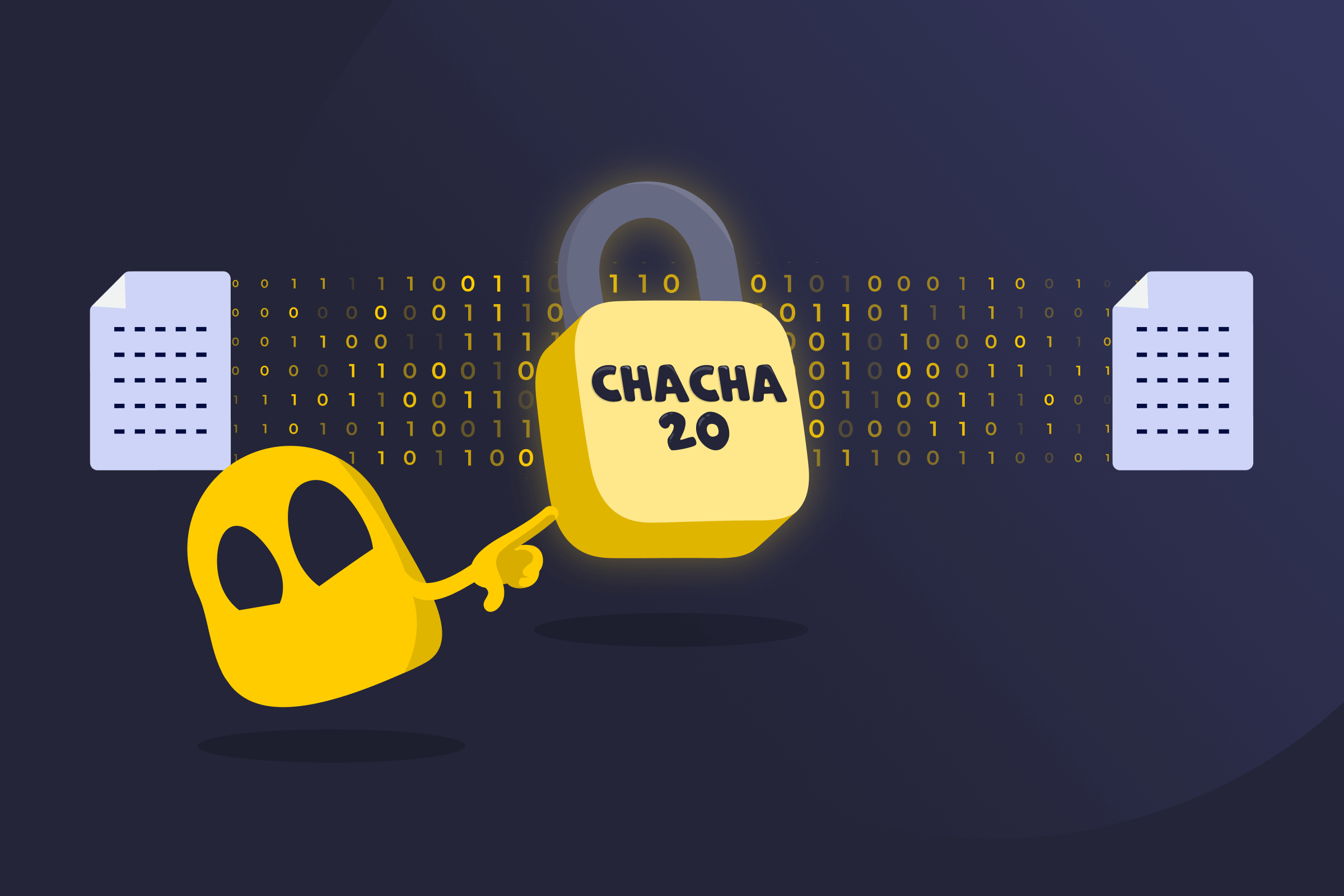ChaCha20

ChaCha20 Definition
ChaCha20 is a modern symmetric encryption algorithm created by cryptographer Daniel J. Bernstein to protect data by scrambling it into an unreadable form using a secret key. It uses a 256-bit key, which makes it secure against most known attacks. It’s designed to be fast, lightweight, reliable, and secure on all types of devices, even those without special hardware support.
How ChaCha20 Works
ChaCha20 encrypts data by generating a secure stream of values and combining it with the original information. It begins with three inputs: a 256-bit secret key, a nonce (a value used only once), and a counter. These inputs ensure that each encryption operation is unique, even when the same data is processed multiple times.
The algorithm then mixes these values through 20 rounds of mathematical operations, producing a stream of random-looking data called a keystream. This keystream is combined with the original data to create the encrypted output.
To decrypt the data, the same key and nonce are used to recreate the keystream and reverse the process.
Where ChaCha20 Is Commonly Used
- Secure internet connections
- VPN services
- Secure messaging apps
- Modern security protocols
- Mobile devices and low-power hardware
- Protecting data in transit
ChaCha20 vs AES
ChaCha20 and AES are both considered secure when used correctly, but they differ in how they encrypt data and where they perform best.
AES is a block cipher, which means it encrypts data in fixed-size blocks. It performs very well on systems with hardware acceleration. ChaCha20 is a stream cipher that encrypts data as a continuous stream. It often performs better on devices without dedicated encryption hardware. Its simpler design also reduces the risk of implementation mistakes.
Read More
- What Is a Network Security Protocol?
- What Is Data Encryption Standard (DES)?
- What Is Symmetric Key Authentication?
FAQ
Yes. ChaCha20 is considered secure when it’s implemented correctly and used with proper key and nonce handling. It was designed to avoid weaknesses found in older stream ciphers and has been heavily analyzed by cryptography researchers. Its 256-bit key size provides a very high security margin, making brute-force attacks impractical with current technology. This is why ChaCha20 is trusted in widely used security standards and protocols.
ChaCha20 works well on almost all modern devices. Unlike some encryption algorithms that rely on special hardware features, ChaCha20 is designed to run efficiently in software. This makes it especially effective on smartphones, tablets, embedded systems, and low-power hardware, while still performing well on desktop and server systems.
There is no known practical attack that can break ChaCha20 when it is used correctly. Researchers have studied it extensively and, so far, found no weaknesses that would allow attackers to recover the key or decrypt data at scale. As with any encryption method, security depends on proper implementation, secure key management, and correct use of nonces, rather than on the algorithm alone.

 45-Day Money-Back Guarantee
45-Day Money-Back Guarantee